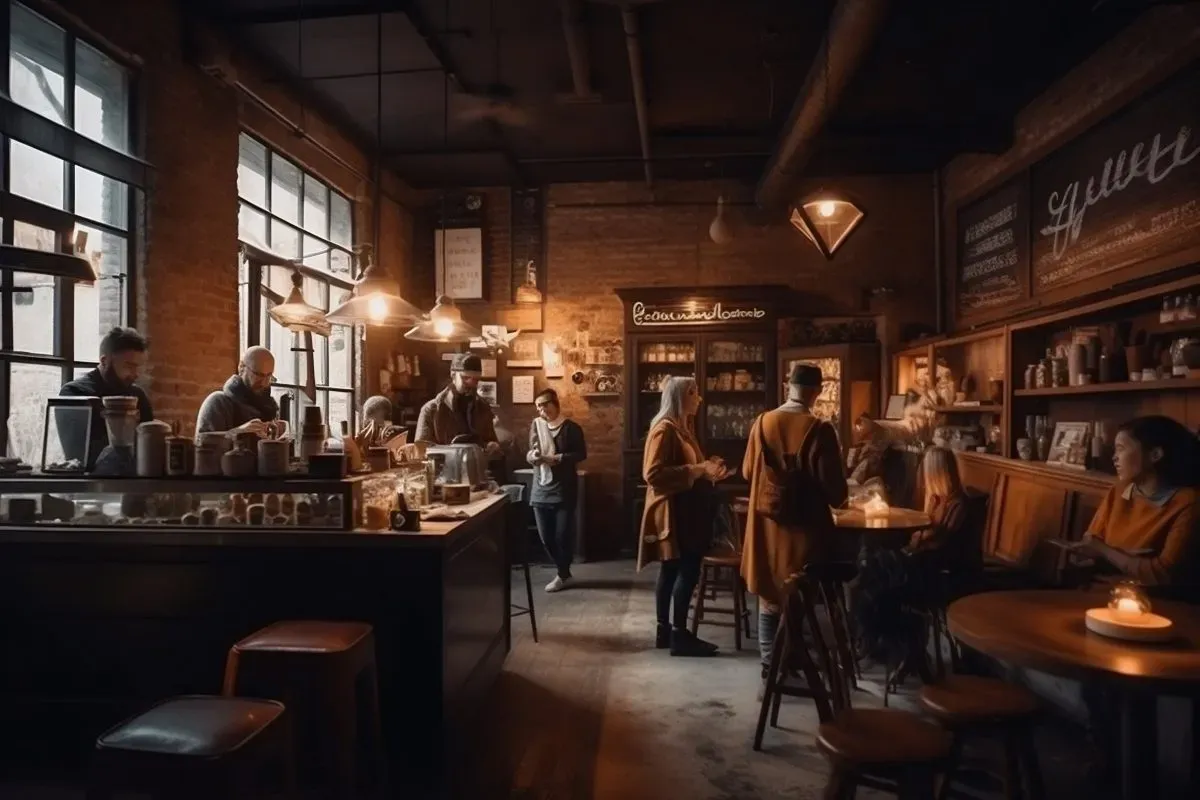In Search Of A Third Place

The term "third place", coined by Ray Oldenburg in his 1989 book "The Great Good Place", refers to places where people go primarily to socialise. This contrasts with the "first place", which is the home, and the "second place", which is one's place of work. Oldenburg advocated for the importance of these "third places" for their benefits to the mental health of individuals and the community as a whole.
In his book, Oldenburg outlines eight criteria which comprise a third place. There is a fair amount of overlap across some of these criteria, so I will not list them out in full. Instead, I will summarise some key takeaways, and use them to outline why I think certain social hubs should be excluded from the classification of a third place. The characteristic which stands out to me the most is that of equalising. Anyone is welcome, regardless of social standing or economic status. This necessarily excludes private members' clubs. A true third place doesn't alienate outsiders, encourage insularity, or breed elitism. The hosts should be friendly and accommodating, and any regulars should follow suit. The regulars are the ones who set the mood in a third place, and give it its unique atmosphere. With regards to the environment itself, Oldenburg describes third places as wholesome, unpretentious, and cozy. Many modern bars fail to live up to this, instead favouring a glossy, sterile aesthetic, elegance over comfort, form over function. The mood, according to Oldenburg, should be light-hearted and playful. Conversation should be the focus, with an emphasis on happy, humorous exchanges. Other activities, such as games, can take place in a third place, but they should not overshadow conversation. This, in my opinion, excludes places like gyms, although they are often considered third places. After all, grunting "How many more sets you got?" and receiving a one-word reply is hardly stimulating conversation. Interestingly, in "The Moon Under Water", an essay by George Orwell which predates Oldenburg's book by over forty years, Orwell describes a fictional, idealised pub which lines up quite closely with Oldenburg's third place.
Socialising has many benefits to us as humans. We are social creatures, after all. Engaging with others can reduce feelings of loneliness and anxiety, and even improve cognition. Meeting face-to-face is especially important when it comes to emotional connection. According to Albert Mehrabian, Professor Emeritus of Psychology at UCLA, when conveying feelings there is a hierarchy of impact of different aspects of communication. He defines three such aspects: the words themselves, tone of voice, and body language/facial expressions. According to his studies, the literal meaning of the words spoken only accounts for 7% of communication. The other 93% is split 38%:55% between tone and expression respectively. This means that the most effective communication of emotion can only occur in person. Speaking on the phone misses out on visual cues, and communicating by text loses that and the sonic cue of tone. Having all the cues to work with, however, leads to better understanding and connection. As well as this, eye contact causes activation in the "social brain", a term for six regions of the brain associated with social interaction and cognition. This can elevate emotional arousal, further enhancing connection and even empathy.
Third places, as Oldenburg describes them, also offer significant benefits to the community. According to him, an ideal third place should be within walking distance from the home. This would make it a good meeting place for locals, encouraging a sense of community and camaraderie among them. There could even be a bulletin board advertising local events or community drives. He advocates for independently owned businesses rather than a franchise of a chain owned by a large corporation. He describes these as "less hardy" examples of third places, as they divert money away from the community to some faraway owner. As well as engendering community spirit and benefiting the local economy, third places serve as melting pots, platforms for the exchange of ideas. He cites the Ancient Greek agora as a historical example. Here, people of all social standings would convene to trade, both goods and ideas. They would carry out religious rituals, watch athletic or musical performances, and engage in philosophical or political debates. In the 17th century, Europe saw a rise in coffeehouses with a similar purpose. These fell short of the inclusivity the agora provided, but were nonetheless hotbeds for philosophical discourse and intellectual exchange.
Since the advent of the Internet, some have suggested the inclusion of virtual third places. Online forums, such as Reddit, or online multiplayer games are examples of these. They do exhibit many of the characteristics of a third place, with perhaps the most notable being the equalising aspect. Because the Internet can be accessed from anywhere in the world, virtual spaces such as these can connect people who would otherwise never interact. Also, as a result of the interaction generally being limited to text, any identifying features of the people interacting, such as physical appearance and voice, are hidden. This allays judgement based on these features, allowing for ideas to be exchanged more freely. As much as these virtual places have their benefits, I would argue that they do not stimulate the social brain quite as effectively as in-person conversation. For this reason, we should try, where possible, to seek out physical third places instead. However, in cases of disability, or where a person is immunocompromised and cannot leave the house, or simply live too remotely from a third place, the virtual space is a good option.
Finding a third place can prove tricky in the modern day. Ideally, it should feel like a home away from home, somewhere to relax in public. Most coffee shops belong to chains, giving them a level of artifice which detracts from their coziness. Likewise, most pubs are parts of chains; otherwise, there is still a good chance that they are frequented by people who tend to be loud and obnoxious. Libraries are a dying breed. Gyms smell like an armpit. Parks are only viable when the weather permits them to be. Barbershops are an option, but most people have no cause to go to them often enough to build a rapport with the staff. Religious centres are great, unless you take issue with organised religion, which I do. The sad truth is, there are too few good options out there.
Fortunately, third places have been making a bit of a comeback in recent years. Since the pandemic, where the second most prevalent affliction was cabin fever, people have taken note of the importance of a place to go outside the home for leisure. One day soon, I hope, the streets will be lined with quirky, cozy, independently owned businesses where anyone can go for a pleasant, relaxing time.



